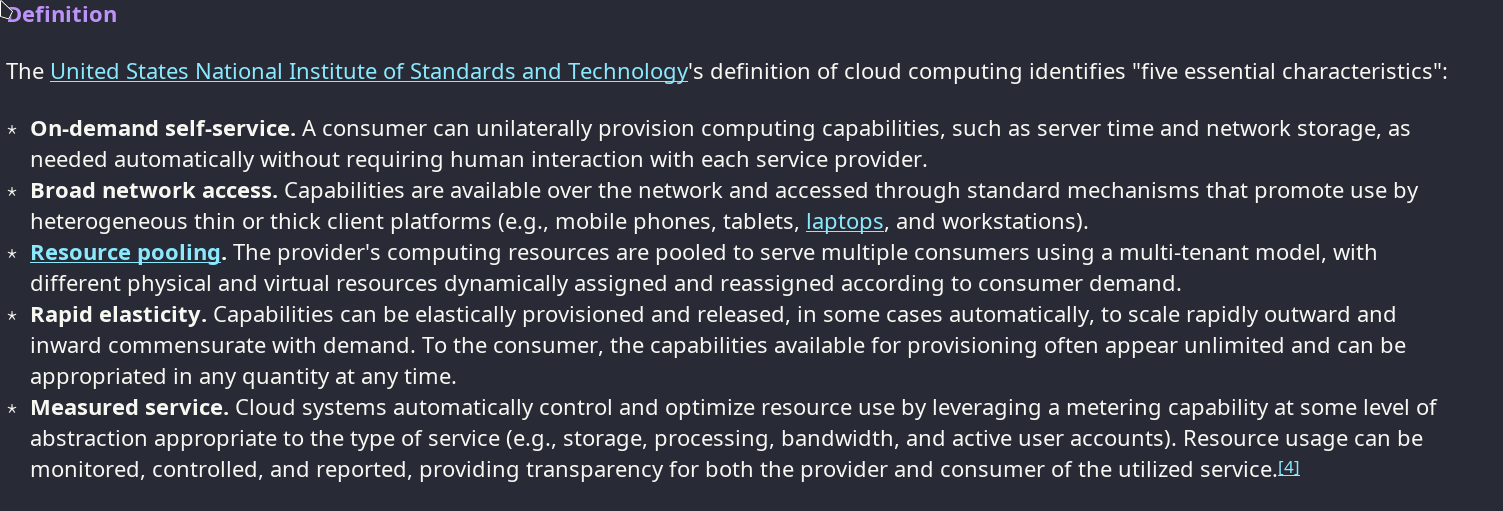Cloud computing
Read: https://en.wikipedia.org/wiki/Cloud_computing

What is “The cloud”?
There is no cloud. The cloud is just someone else’s computer. Companies like Microsoft, AWS invested billions of dollars in data centers, fiber optic cables, satellites, infrastructure around the world that we can utilize.
What makes Cloud Computing special?
The ability to rent computing resources - on demand.
Computing resources:
- Windows and Linux servers
- Unlimited file storage
- Databases
- Message Queues
- Content Delivery Network
- Batch Processing Jobs
Evaluating the need for Cloud
Everyone thinks about migration to the cloud, partly because it’s trendy. Does everyone need this? Certainly not. Those who are not absolutely sure about migrating their applications to a remote cloud provider, such as AWS, Azure, or Google, would like to at least have an on-premises private cloud or Docker containers. But will it really bring them the benefits that compensate for expenses incurred? It is worth answering that question before looking at cloud-native development and cloud platforms.
Always look out for the pricing metrics and bills.
Benefits
References
Google I/O 2012 - SQL vs NoSQL: Battle of the Backends
Reading material
- https://a.walktothe.cloud/ - A cute children’s book explaining cloud.
- https://www.ncsc.gov.uk/collection/cloud/introduction-to-cloud-security
Tags
- AWS Architecture
- Azure Architecture
- Cloud computing - security
- Spring Cloud and Cloud native development
- Cloud Service Types - XaaS (anything as a service)
- Containerization
- GoogleAppEngine
- Maven - Managing Dependencies with AWS SDK for Java
- Serverless Computing
- Shared Responsibility Model
- Virtualization
- Infrastructure as Code (IaC) tools